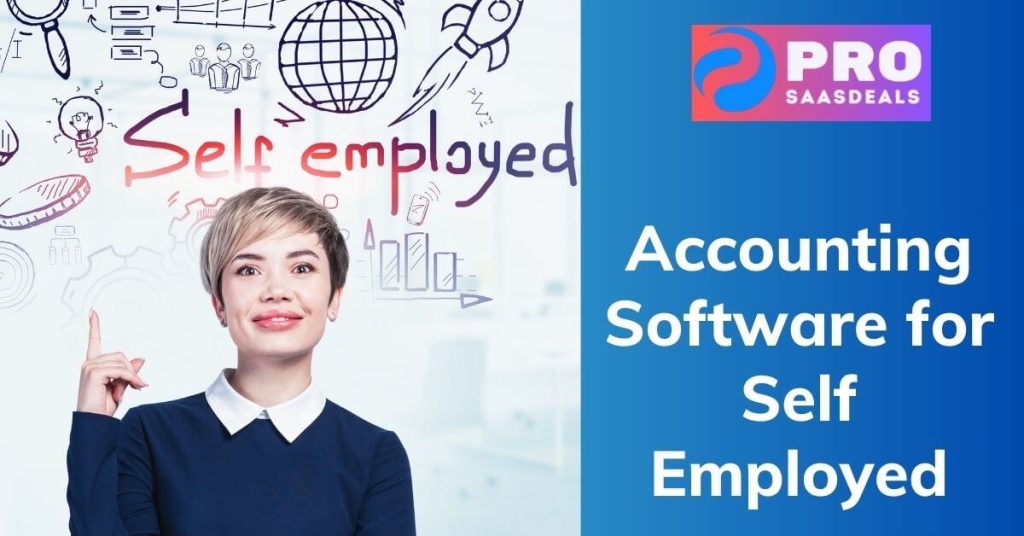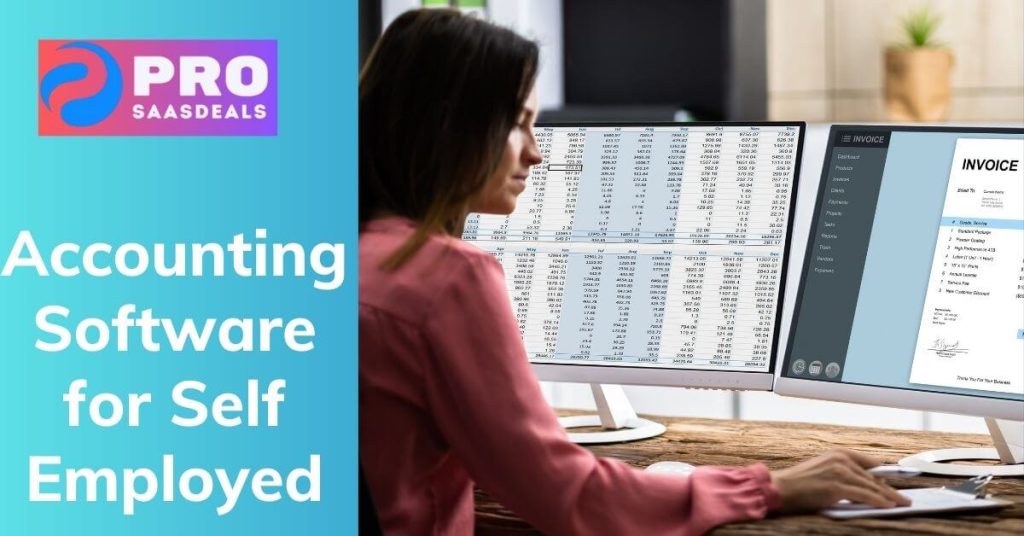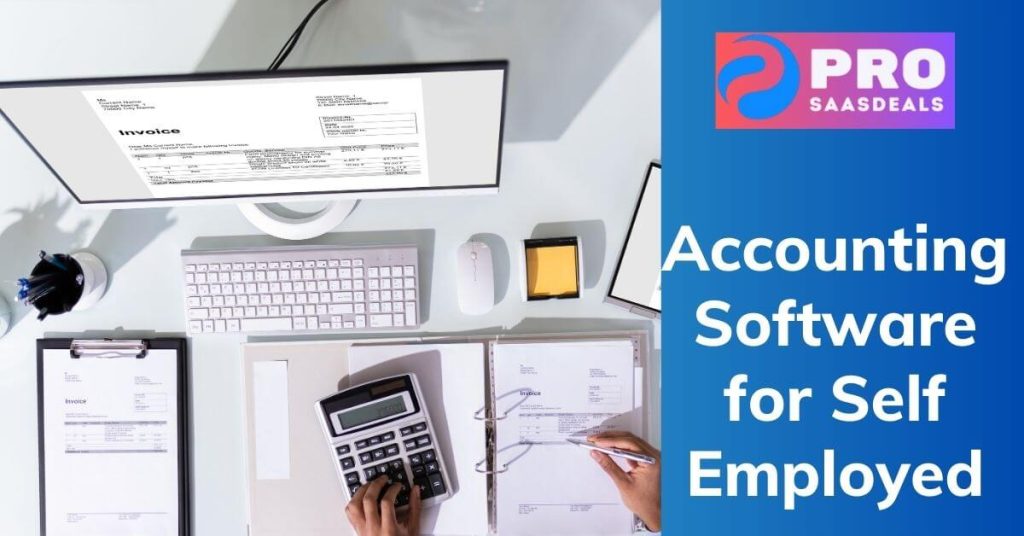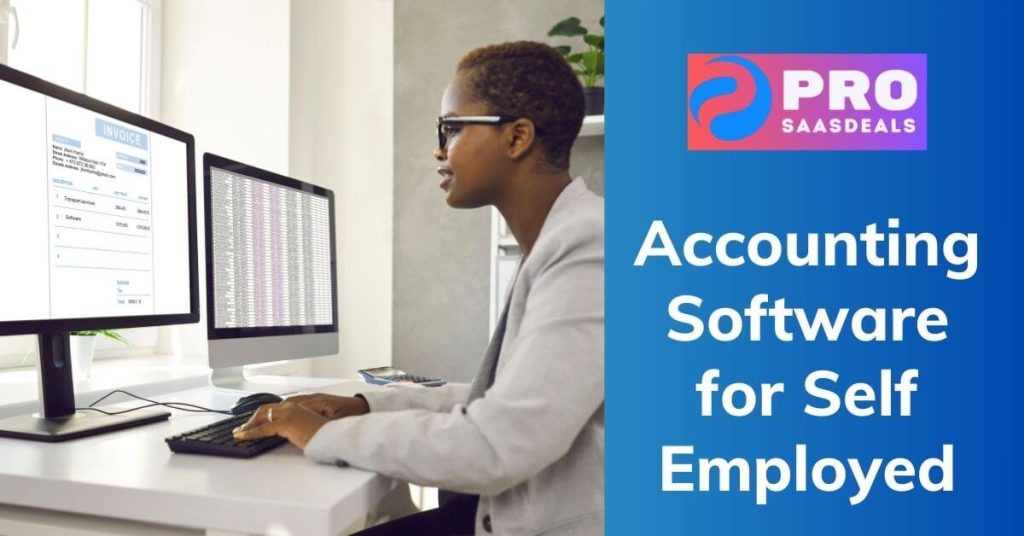Managing finances can be tough for the self-employed. Finding the right accounting software is crucial.
As a self-employed individual, handling your own finances can feel overwhelming. Tracking expenses, sending invoices, and managing taxes are just a few of the tasks that demand your attention. The right accounting software can simplify these chores and help you stay organized.
It can save you time, reduce errors, and give you peace of mind. Whether you are a freelancer, consultant, or small business owner, there is a solution tailored for your needs. Explore the best options to find the one that fits you perfectly.
Introduction To Accounting Software
Choosing the right accounting software is crucial for self-employed individuals. It helps manage finances, track expenses, and ensure tax compliance. Using the right tools saves time and reduces errors.
Importance For Self Employed
For self-employed professionals, accounting software is vital. It simplifies financial management and helps maintain accurate records. Keeping track of expenses and income ensures better financial health. It also aids in tax preparation, making the process less stressful.
Using accounting software allows you to focus on your business. You can spend less time on paperwork and more time on your core activities. This is essential for growth and sustainability.
Key Features To Look For
- Expense Tracking: Monitor and categorize your expenses easily.
- Invoicing: Create and send professional invoices quickly.
- Tax Preparation: Simplify tax filing with built-in tools.
- Reporting: Generate financial reports to understand your business better.
- Integration: Connect with other tools and services you use.
- Security: Ensure your financial data is safe and secure.
- User-Friendly Interface: Easy to navigate and use.
Choosing software with these features ensures you have the best tools for your business. It makes managing finances simpler and more efficient.
| Feature | Importance |
|---|---|
| Expense Tracking | Very High |
| Invoicing | High |
| Tax Preparation | Very High |
| Reporting | High |
| Integration | Medium |
| Security | Very High |
| User-Friendly Interface | High |
Top Accounting Software Options
Finding the right accounting software is crucial for self-employed individuals. It helps to manage finances, track expenses, and prepare for tax season. Let’s explore some of the top accounting software options that cater to the needs of self-employed professionals.
| Complete Information Available on the Product Page |
QuickBooks Self-Employed is a popular choice among freelancers and independent contractors. It offers features that simplify bookkeeping tasks. Here’s what you can expect:
- Track income and expenses easily.
- Separate personal and business expenses.
- Estimate quarterly taxes to avoid surprises.
- Mileage tracking for work-related trips.
- Generate and send invoices quickly.
The dashboard is user-friendly. It provides a clear overview of your financial status. The mobile app allows you to manage finances on the go. QuickBooks Self-Employed integrates with TurboTax, making tax filing less stressful.
FreshBooks is another excellent option for self-employed individuals. It focuses on invoicing and time tracking. Key features include:
- Create professional invoices in minutes.
- Track billable hours and add them to invoices.
- Accept online payments directly from invoices.
- Manage expenses with receipt scanning.
- Generate detailed financial reports.
FreshBooks has a clean, intuitive interface. It is easy to navigate, even for beginners. The software offers robust customer support. FreshBooks also integrates with several third-party apps to enhance functionality.
Both QuickBooks Self-Employed and FreshBooks offer free trials. This allows you to test their features before making a decision. Choosing the right accounting software can save time and reduce stress.
Quickbooks Self-employed
QuickBooks Self-Employed is a popular choice among freelancers and small business owners. It helps manage finances, track expenses, and simplify tax filings. This software aims to make accounting easy for those who are self-employed.
Overview
QuickBooks Self-Employed offers a user-friendly interface. It allows users to track income, expenses, and mileage. The software integrates seamlessly with bank accounts and credit cards. This ensures up-to-date financial information at all times. Users can also generate invoices and accept payments. Tax estimation and filing features reduce the stress of tax season.
Pros And Cons
Pros:
- Easy to use interface
- Tracks income and expenses automatically
- Mileage tracking feature
- Helps with tax estimation and filing
- Integration with bank accounts and credit cards
Cons:
- Limited to self-employed individuals
- No payroll features
- Higher cost compared to some alternatives
- May lack advanced accounting features
Freshbooks
FreshBooks is a popular choice for self-employed professionals. It simplifies accounting and saves time. FreshBooks has many features to help manage finances efficiently.
Overview
FreshBooks offers user-friendly accounting software. It is designed for freelancers and small business owners. It helps with invoicing, expense tracking, and time tracking.
FreshBooks integrates with many apps, making it versatile. It also offers a mobile app for managing finances on the go.
Pros And Cons
| Pros | Cons |
|---|---|
|
|
FreshBooks offers many features. It makes accounting easy for self-employed professionals.
It has a clean interface, which is simple to navigate. This helps save time and reduces errors.
FreshBooks is not perfect. Some advanced features come at a higher cost. But the benefits often outweigh the cons.
Overall, FreshBooks is a solid choice for self-employed individuals. It offers many tools to manage finances effectively.
Wave Accounting
Wave Accounting offers a user-friendly interface tailored for self-employed individuals. It simplifies income tracking, expense management, and invoicing. Ideal for freelancers and small business owners.
Wave Accounting is a free accounting software designed for self-employed individuals and small businesses. It offers a range of features to help manage finances. This software makes bookkeeping easier by automating many tasks.
Complete Information Available on the Product Page
Overview
Wave Accounting provides tools for invoicing, tracking expenses, and managing receipts. You can connect your bank accounts and import transactions automatically. It also offers double-entry accounting, which is useful for tracking where your money goes.
Wave is cloud-based, so you can access it from anywhere. It also has a mobile app, allowing you to manage your finances on the go. The software supports multiple currencies, making it ideal for businesses with international clients.
Pros And Cons
Wave Accounting offers many advantages. One of the biggest pros is that it is free. You get invoicing, receipt scanning, and expense tracking without any cost. The user interface is intuitive, making it easy to navigate for beginners. The software also integrates with other tools like PayPal and Etsy.
There are some cons to consider. Wave does not offer advanced features like project management or inventory tracking. Customer support is limited for free users. Sometimes, it can be slow when processing large amounts of data. It also lacks time tracking, which may be a downside for freelancers who bill by the hour.
Wave Accounting remains a strong choice for self-employed individuals. Its free features cover essential accounting needs, making it a practical option.

Xero
Xero is a popular choice among self-employed individuals for its user-friendly interface and comprehensive features. It helps manage finances efficiently and keeps you on top of your accounting needs. Let’s dive deeper into what makes Xero an excellent option for self-employed professionals.
Overview
Xero is cloud-based accounting software designed with small businesses and self-employed individuals in mind. It offers a range of features like invoicing, expense tracking, and bank reconciliation.
- Easy integration with various financial institutions.
- Real-time updates for better financial management.
- Customizable reports and dashboards.
Pros And Cons
| Pros | Cons |
|---|---|
| Intuitive and user-friendly interface. | Limited customer support options. |
| Excellent mobile app for on-the-go access. | Some advanced features may require add-ons. |
| Seamless integration with third-party apps. | Monthly subscription fees. |
Overall, Xero offers a robust solution for self-employed individuals. Its intuitive design makes it easy to manage finances, while its powerful features ensure you have everything you need at your fingertips.
Comparison Of Features
Choosing the best accounting software for self-employed individuals can be a challenge. To help you decide, we have compared the features of several popular options. This comparison will cover ease of use, pricing, and customer support.
Ease Of Use
It is crucial that accounting software is easy to navigate. Below is a table comparing the ease of use for three popular options:
| Software | Ease of Use |
|---|---|
| QuickBooks | Intuitive interface; simple setup |
| FreshBooks | User-friendly design; easy to get started |
| Xero | Clean layout; straightforward navigation |
Pricing
Understanding the cost is important for self-employed individuals. Here is a comparison of the pricing plans:
| Software | Basic Plan | Advanced Plan |
|---|---|---|
| QuickBooks | $12/month | $75/month |
| FreshBooks | $15/month | $50/month |
| Xero | $11/month | $62/month |
Customer Support
Reliable customer support is essential. Here is how each software performs:
- QuickBooks: 24/7 support, chat, and phone assistance.
- FreshBooks: Email and phone support, weekdays only.
- Xero: Online support, no phone support.
Choosing The Right Software
Choosing the right accounting software is crucial for self-employed individuals. The right tool helps manage finances, save time, and avoid mistakes. Let’s explore how to choose the best software for your needs.
Assessing Your Needs
First, list your accounting tasks. Do you need invoicing, expense tracking, or tax reporting? Understanding your tasks helps you find software that fits. Think about the number of transactions you handle. High transaction volume may require advanced features. Also, consider your budget. Some software offers free basic plans, while others are paid.
Evaluate if the software integrates with your current tools. Compatibility ensures smooth operation. Finally, think about user-friendliness. If you are not tech-savvy, choose software with a simple interface.
Free Trials And Demos
Take advantage of free trials and demos. They allow you to test the software before buying. Use this time to explore all features. Check if the software is easy to navigate. Test its compatibility with your existing systems. See if it meets your accounting needs.
Complete Information Available on the Product Page
Pay attention to customer support. Good support can help you solve issues quickly. After the trial, assess if the software is a good fit. If it meets your needs, consider subscribing.
Tips For Effective Use
Using accounting software effectively can save self-employed individuals both time and money. Proper use ensures that financial records are accurate and accessible. Here are some tips to make the most out of your accounting software.
Regular Updates
Keep your software updated to benefit from the latest features. New updates often include security patches. These are crucial for protecting your financial data. Set reminders to check for updates regularly. An updated software runs smoothly, avoiding unnecessary glitches.
Utilizing Support Resources
Most accounting software offers a range of support resources. These include help guides, tutorials, and customer support. Utilize these resources to understand the full capabilities of your software. Don’t hesitate to reach out to customer support for any questions. They can provide quick solutions to your problems.


Frequently Asked Questions
What Is The Best Accounting Software For Self-employed?
The best accounting software for self-employed individuals often includes QuickBooks Self-Employed, FreshBooks, and Xero. These platforms offer easy invoicing, expense tracking, and tax features.
How Does Accounting Software Help Self-employed Individuals?
Accounting software helps self-employed individuals by simplifying expense tracking, invoicing, and tax preparation. It saves time and reduces errors.
Is Quickbooks Good For Self-employed?
Yes, QuickBooks Self-Employed is ideal for self-employed individuals. It offers features like expense tracking, invoicing, and tax estimation.
Can I Use Accounting Software For Tax Filing?
Yes, many accounting software options assist with tax filing. They help organize expenses, generate reports, and estimate taxes.
Conclusion
Choosing the right accounting software is crucial for the self-employed. It can simplify your finances, save time, and improve accuracy. Consider your needs and budget before making a decision. Each software offers unique features. Test a few options to find the best fit.
Remember, a good accounting tool supports your business growth. Stay organized, manage expenses, and focus on what you do best. Investing in the right software pays off in the long run. Happy accounting!

